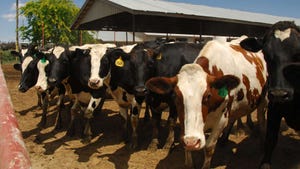U.S., Philippines launch new African swine fever project
Knowledge gained from program is win-win for both countries as it will help U.S. better understand how to prepare, prevent, mitigate a potential ASF outbreak.
July 20, 2022

The National Pork Producers Council joined the USDA Foreign Agricultural Service and leaders from the Philippine Department of Agriculture and the Minnesota Department of Agriculture Wednesday to announce the launch of a new project titled "Capacity building in risk assessment to support safe international trade of U.S. pork products in the Philippines" to address challenges related to African swine fever.
"NPPC is proud to have worked with the Philippine government, U.S. government and the University of Minnesota to see this grant proposal to the finish line," said Terry Wolters, NPPC president and owner of Stoney Creek Farms in Pipestone, Minnesota. "Creating international partnerships provides further safeguards to keep American agriculture safe from foreign animal disease so U.S. pork producers can continue to provide consumers in both countries with safe and affordable pork products."
The Philippines has had ongoing ASF outbreaks and is seeking better ways to control the virus and the subsequent food price inflation. NPPC worked with the Philippine embassy in Washington, D.C., to ascertain the needs of the Philippine government and producers for ASF outbreak management. The NPPC international affairs team partnered with the University of Minnesota to develop a proposal for government assistance that FAS graciously accepted and announced they would fund the project both in the Philippines and Vietnam.
"The knowledge to be gained from the program is a win-win for both countries as it will help us better understand how to prepare, prevent and mitigate a potential ASF outbreak," said Andres M. Perez, DVM, PhD, professor, Department of Veterinary Population Medicine, who also directs the university's Center for Animal Health and Food Safety. "Assisting other countries to implement control measures that reduce the spread of the disease simultaneously limits the risk to the U.S. pork industry."
The ASF program will support the readiness and transparency of the Philippine animal health services by building the foundation of a risk-based approach to constructing and implementing animal health policy and programs. The program will include workshops for provincial officers and intense in-person training of fellows identified by representatives from the Philippine Department of Agriculture. Participants also will have asynchronous training based on material developed and delivered in advance of the workshops.
"NPPC wants to thank USDA for funding this program and their broader commitment to prevention and preparedness against ASF and other foreign animal diseases," Wolters added. "This program ties in well with the $500 million committed by USDA for ASF preparedness and prevention and the recently launched USDA Borlaug Fellowship Program aimed at developing quick and affordable testing kits for African swine fever and other transboundary animal diseases."
The United States is a top pork exporting nation. An ASF outbreak in America would cause billions in losses and hinder exports of U.S. pork. NPPC has been working with the USDA to prevent and prepare for the potential outbreak of ASF. NPPC will continue to work with global partners to collaborate in areas of common interest, such as foreign animal diseases.
Source: National Pork Producers Council, which is solely responsible for the information provided, and wholly owns the information. Informa Business Media and all its subsidiaries are not responsible for any of the content contained in this information asset.
About the Author(s)
You May Also Like

.png?width=300&auto=webp&quality=80&disable=upscale)

